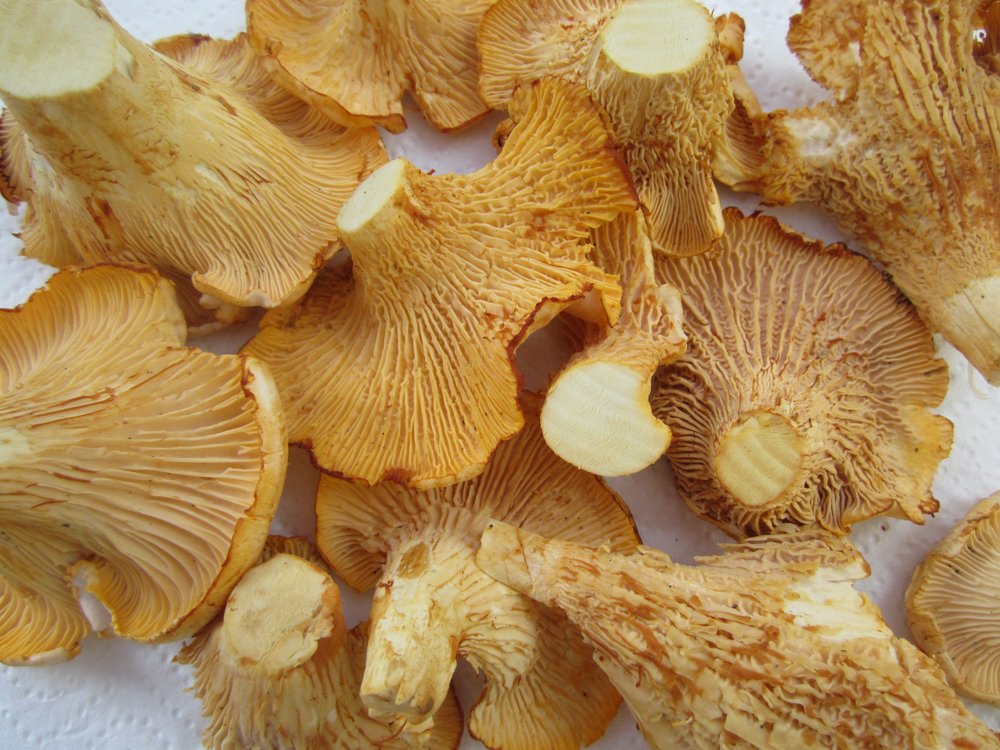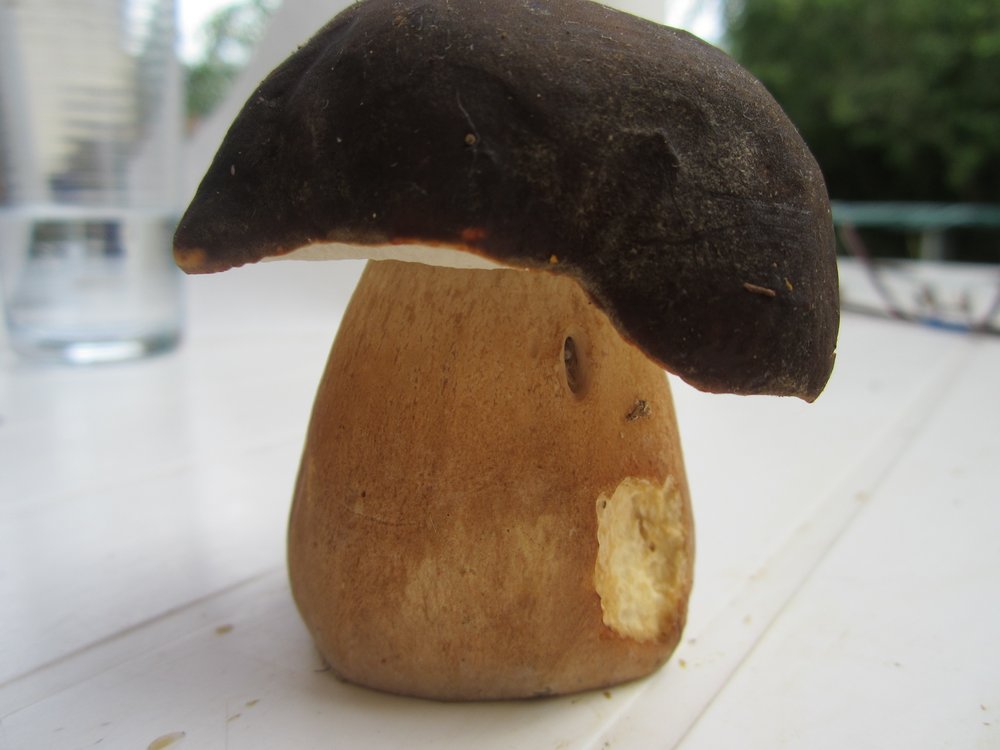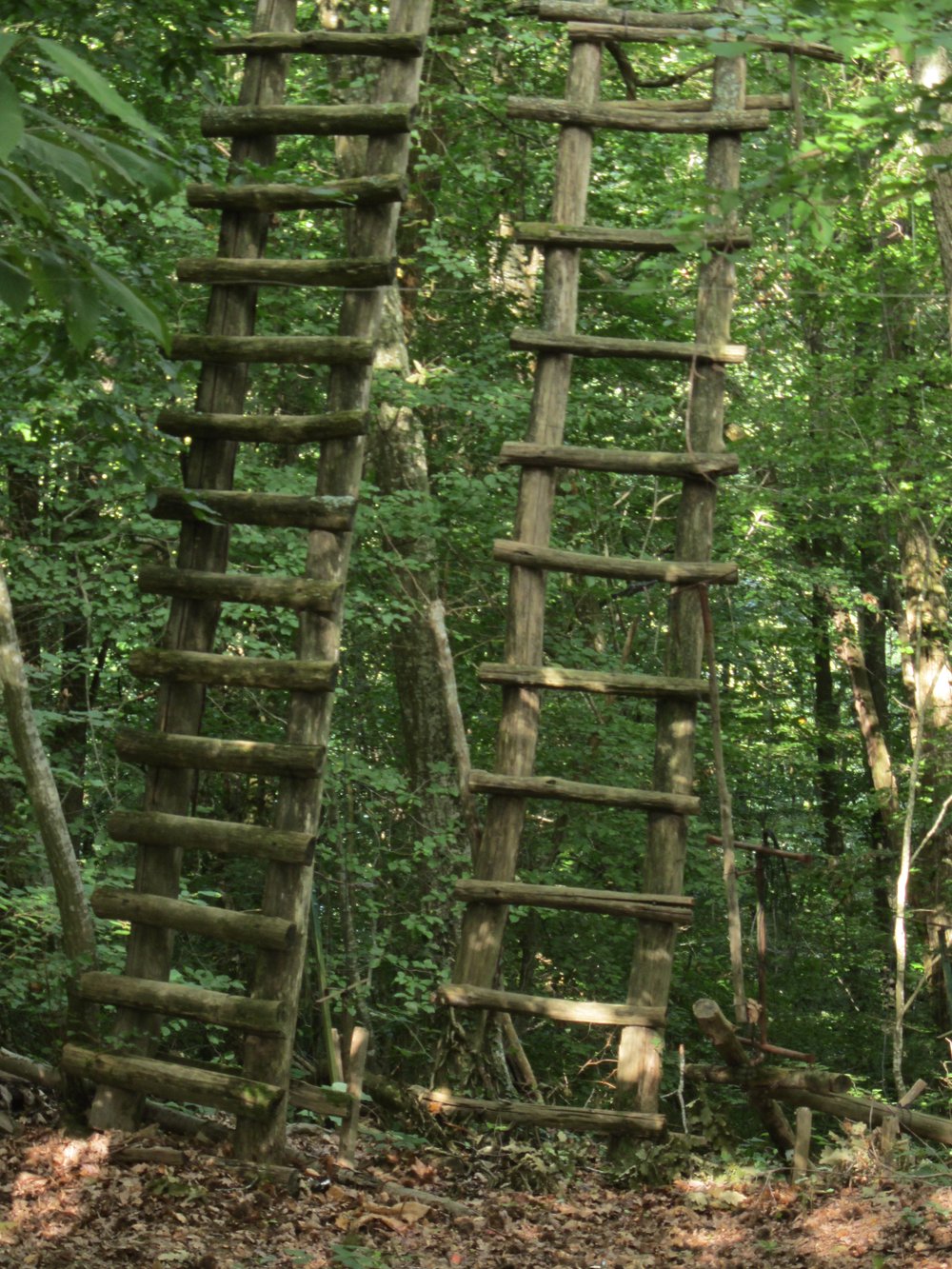
The dirt path is bumpy and barely used by farmers coming to cut wood. A few open fields deep in the woods are used to graze cattle. The woods are filled with chestnut trees, the green spiny fruit dangling, beech trees, some holly. The land in the woods is often terraced, a reminder that this region was mostly vineyards until phylloxera destroyed the vines in the late nineteenth century.
Near the house that is now owned by two Dutch women, we turned right. The day before we had visited the women, who have set up shop to make cheese here in this isolated patch of French soil. We had heard of these two for the ten years since they moved in—that they are Dutch is a novelty in an area where the British have come to settle. But more, that they are a couple has pretty much everyone talking. “We’ve seen everything here in Estampes,” Odette says clapping her hands and laughing. But newcomers to the area are scrutinized. Odette knows this as her husband Stanis, came from Polish stock: Baczkowski. She was ostracized from her family for marrying a Pole, who was more French than some Frenchmen.

The one Dutch woman was wearing trendy glasses and almost clean jeans. She speaks both French and English well and told us she was an optician, her partner an architect. “It’s good to do something new with your life,” she said in her lilting accent. This I agree with. But this change of country and of career seemed dramatic. The house they bought had been abandoned for ten years. They wanted something inexpensive, and they found it. Her partner emerged, broader in the shoulders, her short blond hair unkempt, a light powder coating her arms. She was off to feed the happy pigs we’d seen in the fields. We bought a quarter of a round of cheese, and went on our merry way.
Today we didn’t stop for cheese, but rather continued through the woods, the dry, blond soil rutted by tractors. It’s hot out. I lose sight of my companions and at intersections in the woods they put up cairns and sticks as arrows to point me in the right direction. It’s easy to get lost in the maze of trails through these woods.

Earlier Odette had told me about the palombe, and how much Stanis liked to shoot them. They would be in the fields, bringing in hay, when he’d see a flock of doves overhead. “Don’t move,” he yell at her. He’d stop the tractor, pull out his gun and down a few birds. She’d wait for him to finish his hunt. “I was so stupid, standing there in the field,” she laughed. Stanis liked to hunt and had hunting dogs he prized. He went after woodcock, quail, partridge. But he was most excited by the wood dove. Odette tells me that cooked in a little white wine, they are delicious.